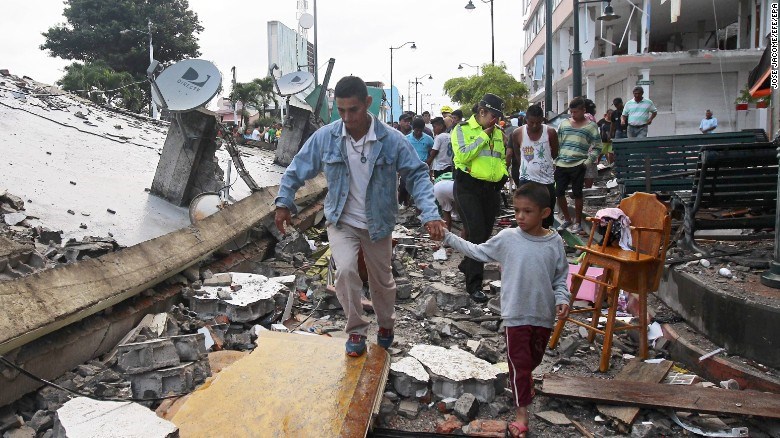
Sep 19, 2016 | Non categorizzato
 As the news media reported, a magnitude 7.8 earthquake hit Ecuador on April 16, especially the provinces of Manabi, Esmeraldas, Santo Domingo and Pichincha, leaving nearly 30 people without a roof.
As the news media reported, a magnitude 7.8 earthquake hit Ecuador on April 16, especially the provinces of Manabi, Esmeraldas, Santo Domingo and Pichincha, leaving nearly 30 people without a roof.
The Focolare Movement immediately got to work in many ways: beginning from the early relief efforts with the many spontaneous volunteers, and morning on to a large-scale fundraiser coordinated by AMU and AFN. Meanwhile a local commission was set up to identify the main priorities for the relief effort and to coordinate over a long term. They write from the commission: “In the past months several of us have gone to visit the different sites of the earthquake, meeting with the communities and seeking to collaborate with agencies that had similar goals. By the end of August the first proposals were ready and we began to collaborate with the Ecuadoran Popolorum Progressio Fund (FEPP) and the Fundación Amiga.” 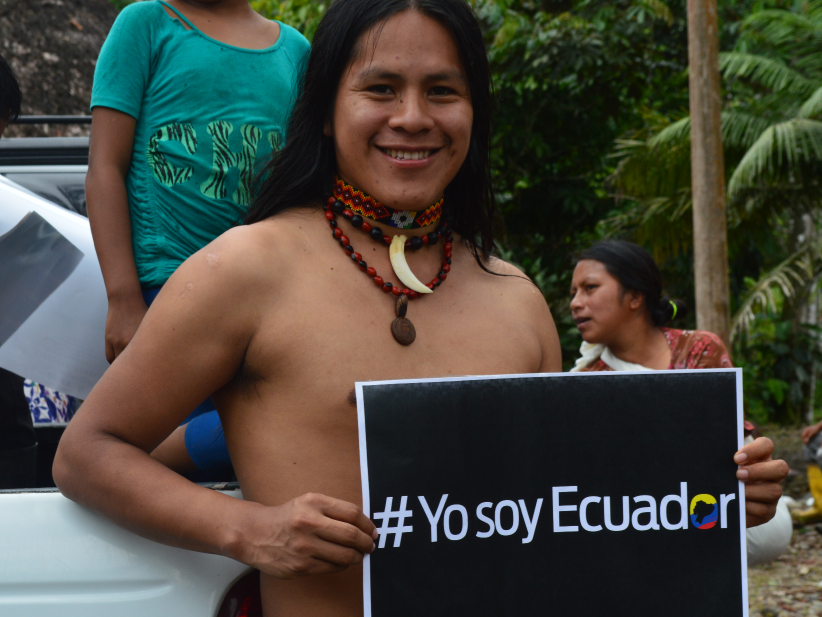 At this stage, the post-emergency interventions that were deemed most serious regarded the production of goods that could be sold and provide economic support for the local populations, and psychological support in overcoming the trauma which – as they write – “is still very quite strong after 5 months.” They also underscored another important point: “We saw the need to offer training in the procedure for applying for assistance from the Ecuador Government for the reconstruction of housing. At first, relief efforts concentrated on three localities, all located in the Province of Esmeraldas: Salima, “10 de Agosto” and Macara, “where projects will carried out to alleviate the consequences of trauma and to reinforce the organizational skills of the community,” they explain. “Moreover, a cooperative bread bakery and a training course in making fishing nets, involving the elderly fishermen as trainers. In the locality known as “10 de Agosto”, handicraft workshops will be held and a group of mothers will be helped in setting up a nursery.” The local commission writes: “this represents the first stage of the project, which corresponds to current funds. As we work with the community, we’ll delve more deeply into the future needs of the people and be able to respond to them. As of today: € 35.502 have been donated by AMU for the Ecuador emergency, € 10.000 of which have already been paid out, whereas the sum of € 10.000 has been donated to the cause by AFN (Action for New Families). Read earlier news: – Ecuador Emergency – Two months after the Ecuador earthquake
At this stage, the post-emergency interventions that were deemed most serious regarded the production of goods that could be sold and provide economic support for the local populations, and psychological support in overcoming the trauma which – as they write – “is still very quite strong after 5 months.” They also underscored another important point: “We saw the need to offer training in the procedure for applying for assistance from the Ecuador Government for the reconstruction of housing. At first, relief efforts concentrated on three localities, all located in the Province of Esmeraldas: Salima, “10 de Agosto” and Macara, “where projects will carried out to alleviate the consequences of trauma and to reinforce the organizational skills of the community,” they explain. “Moreover, a cooperative bread bakery and a training course in making fishing nets, involving the elderly fishermen as trainers. In the locality known as “10 de Agosto”, handicraft workshops will be held and a group of mothers will be helped in setting up a nursery.” The local commission writes: “this represents the first stage of the project, which corresponds to current funds. As we work with the community, we’ll delve more deeply into the future needs of the people and be able to respond to them. As of today: € 35.502 have been donated by AMU for the Ecuador emergency, € 10.000 of which have already been paid out, whereas the sum of € 10.000 has been donated to the cause by AFN (Action for New Families). Read earlier news: – Ecuador Emergency – Two months after the Ecuador earthquake
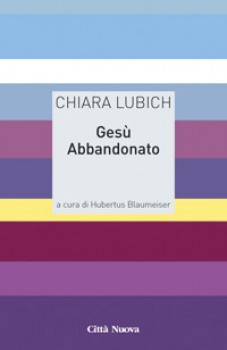
Sep 18, 2016 | Non categorizzato
 “I’d like to console Him, to run through the world, gathering hearts for Him.” This was Chiara Lubich’s first impulse on January 24, 1944 when she became aware of Jesus’s abysmal cry from the cross: “My God, my God, why have you abandoned me?” If that was the moment when he suffered most,” she reasoned, “then it was the moment when he loved us most. Let’s make Him the ideal of our life!” And to think that back then theology did not take into consideration the abandonment experienced by Jesus! Catholic piety focused its attention on the physical suffering, the agony in the Garden of Gethsemane. But World War II and the Holocaust in particular dug a hole in the human conscience that only Jesus’s experience of extreme abandonment could fill. While still young Chiara chose to love the abandoned Jesus in the innumerable faces of personal and collective human suffering, so that the Abandoned One would not be alone in His abandonment. Very soon, however, she experienced something quite unexpected: “You throw yourself into a sea of pain and find yourself swimming in a sea of love.” The agony subsides into joy and transforms relationships, creating communion: “They are two sides of the same medal. To all the souls I show the face of Unity. For me and the souls that are on the front lines of Unity: the abandoned Jesus is all for us.” The years 1949-1951 were a well-spring of new intuitions. The wound of the abandonment as the expression of maximum Love becomes for Chiara the keystone of her vision of human history, of life itself and of God. She contemplates His abandonment as “the pupil of God’s Eye [through which he looks] on the world: an Infinite Emptiness through which God looks at us: God’s window thrown open onto the world, and the window through which humanity sees God.” Years of trial followed as the Church carried out its close examination of the new charism, a time of suspension that Chiara experienced in the light of the Son who was abandoned by the Father, convinced that through it all the Church was being a Mother. Stage by stage, the book traces the trajectory of Chiara’s spiritual adventure, through her letters, notes, diaries and talks that are compiled in six chapters. Its 160 pages, including an introduction by theologian Hubertus Blausmeiser, could accompany and illuminate our daily life. – and includes an introduction by theologian Hubertus Blaumeiser. With the Church’s official approval of the Focolare in early 1960, a new perspective is opened: Abandoned Jesus becomes the motivating drive behind the thrust to move out and face the social challenges, in every form of suffering. He is the “Teacher of dialogue” in the ecumenical and interreligious environment. He presents Himself as the God of today, who is even able to talk to non-believers and be a source of cultural change. The author takes up the “Holy Journey” with Him, a communitarian journey to holiness that has included hundreds and thousands of people from around the world: “He is the supreme Master of the spiritual life, of detachment from self, detachment from everything, from what is of God, but not God.” “Loving abandoned Jesus,’ she writes, “we find the reason and the strength to not escape from these evils, these divisions, but to accept them and consume them and bring to them our own personal and collective remedy.” And she states with certitude: “If we manage to encounter Him in every suffering, if we love Him, if we turn to the Father like Jesus on the cross: “Father, into your hands I commend my spirit” (Lk. 23:46), then with Him the night will be a thing of the past, and light will illuminate us.”
“I’d like to console Him, to run through the world, gathering hearts for Him.” This was Chiara Lubich’s first impulse on January 24, 1944 when she became aware of Jesus’s abysmal cry from the cross: “My God, my God, why have you abandoned me?” If that was the moment when he suffered most,” she reasoned, “then it was the moment when he loved us most. Let’s make Him the ideal of our life!” And to think that back then theology did not take into consideration the abandonment experienced by Jesus! Catholic piety focused its attention on the physical suffering, the agony in the Garden of Gethsemane. But World War II and the Holocaust in particular dug a hole in the human conscience that only Jesus’s experience of extreme abandonment could fill. While still young Chiara chose to love the abandoned Jesus in the innumerable faces of personal and collective human suffering, so that the Abandoned One would not be alone in His abandonment. Very soon, however, she experienced something quite unexpected: “You throw yourself into a sea of pain and find yourself swimming in a sea of love.” The agony subsides into joy and transforms relationships, creating communion: “They are two sides of the same medal. To all the souls I show the face of Unity. For me and the souls that are on the front lines of Unity: the abandoned Jesus is all for us.” The years 1949-1951 were a well-spring of new intuitions. The wound of the abandonment as the expression of maximum Love becomes for Chiara the keystone of her vision of human history, of life itself and of God. She contemplates His abandonment as “the pupil of God’s Eye [through which he looks] on the world: an Infinite Emptiness through which God looks at us: God’s window thrown open onto the world, and the window through which humanity sees God.” Years of trial followed as the Church carried out its close examination of the new charism, a time of suspension that Chiara experienced in the light of the Son who was abandoned by the Father, convinced that through it all the Church was being a Mother. Stage by stage, the book traces the trajectory of Chiara’s spiritual adventure, through her letters, notes, diaries and talks that are compiled in six chapters. Its 160 pages, including an introduction by theologian Hubertus Blausmeiser, could accompany and illuminate our daily life. – and includes an introduction by theologian Hubertus Blaumeiser. With the Church’s official approval of the Focolare in early 1960, a new perspective is opened: Abandoned Jesus becomes the motivating drive behind the thrust to move out and face the social challenges, in every form of suffering. He is the “Teacher of dialogue” in the ecumenical and interreligious environment. He presents Himself as the God of today, who is even able to talk to non-believers and be a source of cultural change. The author takes up the “Holy Journey” with Him, a communitarian journey to holiness that has included hundreds and thousands of people from around the world: “He is the supreme Master of the spiritual life, of detachment from self, detachment from everything, from what is of God, but not God.” “Loving abandoned Jesus,’ she writes, “we find the reason and the strength to not escape from these evils, these divisions, but to accept them and consume them and bring to them our own personal and collective remedy.” And she states with certitude: “If we manage to encounter Him in every suffering, if we love Him, if we turn to the Father like Jesus on the cross: “Father, into your hands I commend my spirit” (Lk. 23:46), then with Him the night will be a thing of the past, and light will illuminate us.”
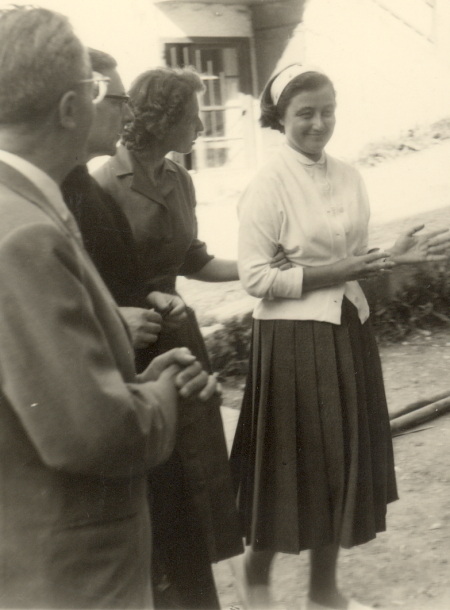
Sep 17, 2016 | Non categorizzato
 The following is recorded in the personal diary of Igino Giordani: “17 September 1948. This morning at Montecitorio I was called upon by angels: a Capuchin, a Friar Minor, a Conventual, a Third Order man and a Third Order woman, Silvia Lubig (sic!), who is beginning a community in Trent. She spoke like a saint inspired by the Holy Spirit.” Recounting the event: “One day I was urged to listen to an apostle – as they said – of unity. It was in September 1948. I exhibited the usual courtesy of any deputy towards possible electors when some Religious came to Montecitorio, representatives of different branches of the Franciscan family, a young lay woman and a young layman. To see a Conventual, a Friar Minor, a Capuchin, and a woman and man from the Third Order of Saint Francis all united together already looked like a miracle of unity to me: and I said so. The young lady spoke: I was sure I’d hear a sentimental propagandist tell me about some utopian welfare. Instead, right from the first words I felt something new. A half hour later when she had finished talking, I was taken by the enchanting atmosphere: I would have liked that voice to continue on. Without realizing it, it was the voice that I had been waiting for. She placed holiness within everyone’s reach; she took away the grates that separated the lay world from the mystical life. She made public the treasures of a castle that only a few were admitted to. She brought God near: she made him feel like a Father, brother, friend, present to humankind. I wanted to look into it: and getting familiar with the life of the Focolare of unity – as they called it – I recognized in their experience the realization of the desire that overwhelmed Saint John Chrysostom: that the laity would live as monks, minus celibacy. I had much cultivated that desire. What happened was that the idea of God had yielded its place to God’s love, the ideal image of the living God. In Chiara I had found someone who didn’t talk about God, but someone who spoke with God: a daughter speaking in loving conversation with the Father. If I did a critical examination of it, I found that I hadn’t discovered anything new. In the way of life that was opening to my soul, I found all the same names, characters and doctrines that I had loved. All my study, my ideals, the very events of my life all seemed directed to this goal. Nothing new: yet everything was new: the elements of my cultural and spiritual formation began to come together in accordance with God’s plan. They took their rightful place. All was old and all was new. The key that unlocked the mystery had been discovered: love was allowed to pass, which had too often been barricaded: and it burst forth spreading like fire and becoming a blaze. A collective, socialized holiness – to use terms that were later popularized by the Second Vatican Council – drawn out of the individualism that had accustomed everyone to become holy on one’s own, meticulously caring for one’s own soul, with endless analyses in order not to lose that soul. A piety, an interior life that came from Religious houses, from a certain exclusiveness of the privileged classes was now poured out into the public, into offices and factories, into houses and fields – and into convents – because wherever you find people, you find candidates for the perfection of holiness. And to live this new life, to be born in God, I didn’t have to renounce my doctrines: I only had to place them in the fire of love so that they would come alive. Through my neighbour I began to live God. Life became a total adventure, consciously lived in union with the Creator, which is what life is. Mary was resplendent with a new beauty; the saints entered among the relatives; Heaven became a common home. This was the discovery, this the experience. This made me a new man.”
The following is recorded in the personal diary of Igino Giordani: “17 September 1948. This morning at Montecitorio I was called upon by angels: a Capuchin, a Friar Minor, a Conventual, a Third Order man and a Third Order woman, Silvia Lubig (sic!), who is beginning a community in Trent. She spoke like a saint inspired by the Holy Spirit.” Recounting the event: “One day I was urged to listen to an apostle – as they said – of unity. It was in September 1948. I exhibited the usual courtesy of any deputy towards possible electors when some Religious came to Montecitorio, representatives of different branches of the Franciscan family, a young lay woman and a young layman. To see a Conventual, a Friar Minor, a Capuchin, and a woman and man from the Third Order of Saint Francis all united together already looked like a miracle of unity to me: and I said so. The young lady spoke: I was sure I’d hear a sentimental propagandist tell me about some utopian welfare. Instead, right from the first words I felt something new. A half hour later when she had finished talking, I was taken by the enchanting atmosphere: I would have liked that voice to continue on. Without realizing it, it was the voice that I had been waiting for. She placed holiness within everyone’s reach; she took away the grates that separated the lay world from the mystical life. She made public the treasures of a castle that only a few were admitted to. She brought God near: she made him feel like a Father, brother, friend, present to humankind. I wanted to look into it: and getting familiar with the life of the Focolare of unity – as they called it – I recognized in their experience the realization of the desire that overwhelmed Saint John Chrysostom: that the laity would live as monks, minus celibacy. I had much cultivated that desire. What happened was that the idea of God had yielded its place to God’s love, the ideal image of the living God. In Chiara I had found someone who didn’t talk about God, but someone who spoke with God: a daughter speaking in loving conversation with the Father. If I did a critical examination of it, I found that I hadn’t discovered anything new. In the way of life that was opening to my soul, I found all the same names, characters and doctrines that I had loved. All my study, my ideals, the very events of my life all seemed directed to this goal. Nothing new: yet everything was new: the elements of my cultural and spiritual formation began to come together in accordance with God’s plan. They took their rightful place. All was old and all was new. The key that unlocked the mystery had been discovered: love was allowed to pass, which had too often been barricaded: and it burst forth spreading like fire and becoming a blaze. A collective, socialized holiness – to use terms that were later popularized by the Second Vatican Council – drawn out of the individualism that had accustomed everyone to become holy on one’s own, meticulously caring for one’s own soul, with endless analyses in order not to lose that soul. A piety, an interior life that came from Religious houses, from a certain exclusiveness of the privileged classes was now poured out into the public, into offices and factories, into houses and fields – and into convents – because wherever you find people, you find candidates for the perfection of holiness. And to live this new life, to be born in God, I didn’t have to renounce my doctrines: I only had to place them in the fire of love so that they would come alive. Through my neighbour I began to live God. Life became a total adventure, consciously lived in union with the Creator, which is what life is. Mary was resplendent with a new beauty; the saints entered among the relatives; Heaven became a common home. This was the discovery, this the experience. This made me a new man.”
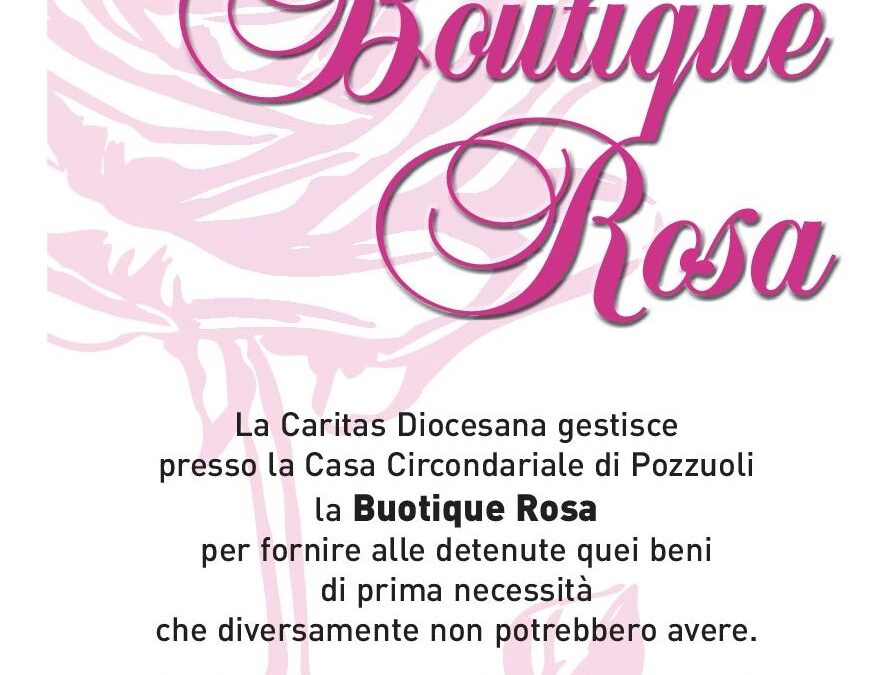
Sep 16, 2016 | Non categorizzato
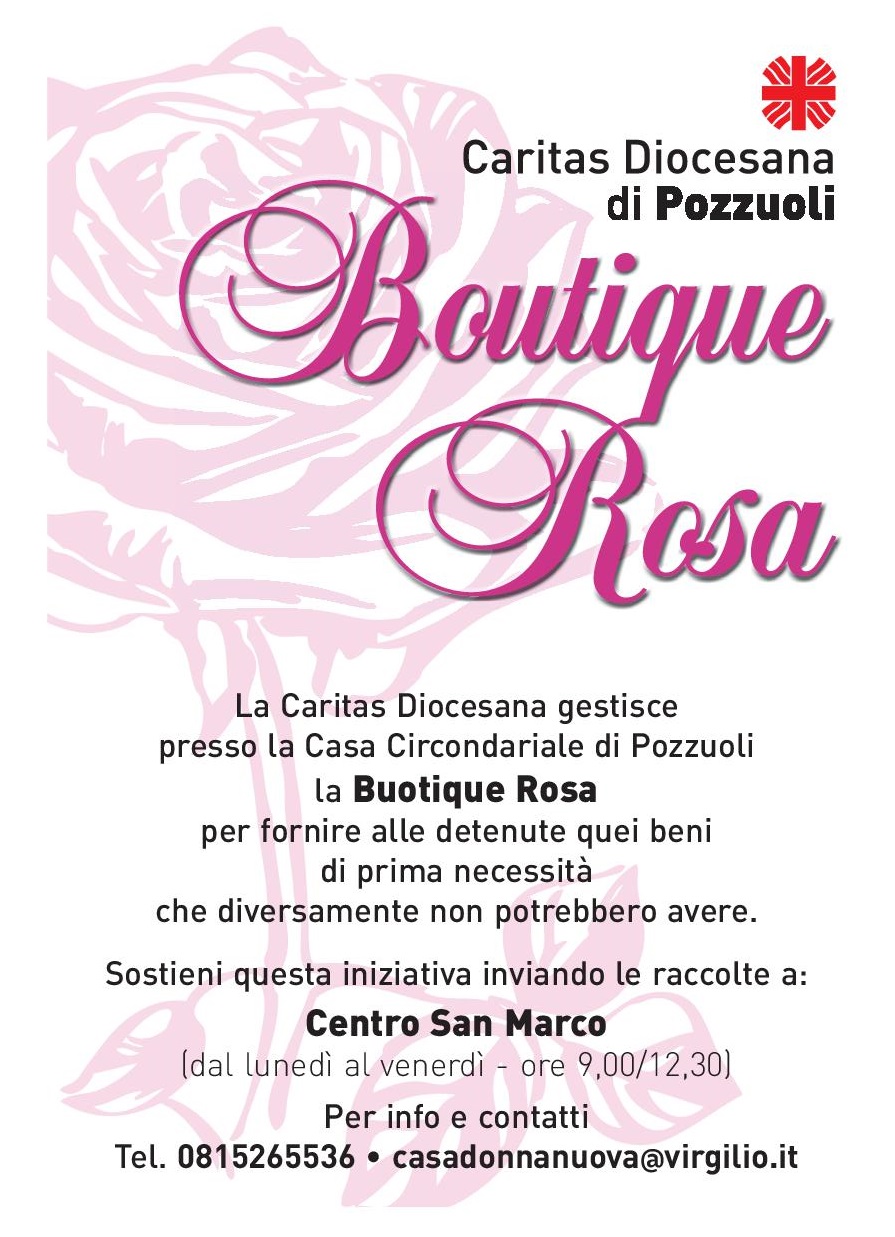 In 2011, Maria Clara who had just retired, transferred her services to the women’s jail of Pozzuoli (Naples-Italy), a huge jail, and one of the most overcrowded in Italy. Struck by the cries of pain that reached her ears from the barred windows, she discussed it with her friends of the local Focolare community and 25 of them (boys, girls, families…) decided to respond to the appeal. In collaboration with the diocesan Caritas and other Movements, the group thus immersed themselves into that suffering humanity behind bars. It was not an easy experience, but one that led to refine, in the name of mercy, every gesture and word, so as to be really that presence of love the world awaits. Each one became more aware that they did not go there to “absolve,” judge, or just to carry out social work, but only to give love, focusing on the reconstruction of the person. And probably because of this attitude, very soon they saw the positive aspects emerge in each person. “When I get out of here I want to be a new person,” one of them confided. And another said: “Now I know what it means to be a Christian, and I want to live by the Gospel, loving my cellmates, even if they make life impossible.” Still another said: “I understood that the real help comes from Jesus in the Eucharist and not from the “power–wielding people of the world.” This flow of light and grace was not earned with a magic wand. It was the fruit of continual attention to the needs of the inmates, helping them to rediscover their own dignity through living the Gospel. It consisted in going with them to Sunday Mass, enlivening it with songs, and placing oneself at their disposal to renovate the chapel. It meant asking and obtaining the permit from the jail administration to organise a series of workshops on health education, cooking, yoga, sewing courses, etc., in the Family Home “Donna Nuova” which hosts women under alternative detention regimes. One of the things the inmates needed – not expressed but which immediately came to the fore – was self-care. This inspired the establishment of the “Pink boutique,” a free facility within the jail, with pink walls, curtains and coloured shelves in contrast with the greyness of the cells. It is a point where the inmates, often abandoned or far from their own families, can weekly receive products for their personal hygiene, clothes, underwear, etc., and in short, all that serves to boost their own self-esteem. In the meantime, they could talk to one another or to the wardens and listen to each other’s difficulties, to comfort one another in their regret for not being able to care for their children at home, thus building really close relationships. It was also the occasion to share big and small joys, such as a reduced prison sentence, an unexpected visit, and the steps taken in starting again. All of them are from different ethnic groups and cultures, and belong to various Christian churches and religions. “I remember an Orthodox woman,” Maria Clara recounts, “who during the Unity of Christians Prayer Week, wanted to contribute with a prayer-song. Crying, she told me that she was offering the immense suffering of her prison term for the unity of the churches. We then went to Naples to meet her husband and five children, with some aid for them. We share this experience with some people belonging to Christian churches of various denominations, with which an ecumenical dialogue was opened in the diocese. This was exactly what they were waiting for! Now also four evangelical sisters have started working with us. Thanks to them, inmates of various churches have established really close relationships that at times, continue even when they leave the jail.”
In 2011, Maria Clara who had just retired, transferred her services to the women’s jail of Pozzuoli (Naples-Italy), a huge jail, and one of the most overcrowded in Italy. Struck by the cries of pain that reached her ears from the barred windows, she discussed it with her friends of the local Focolare community and 25 of them (boys, girls, families…) decided to respond to the appeal. In collaboration with the diocesan Caritas and other Movements, the group thus immersed themselves into that suffering humanity behind bars. It was not an easy experience, but one that led to refine, in the name of mercy, every gesture and word, so as to be really that presence of love the world awaits. Each one became more aware that they did not go there to “absolve,” judge, or just to carry out social work, but only to give love, focusing on the reconstruction of the person. And probably because of this attitude, very soon they saw the positive aspects emerge in each person. “When I get out of here I want to be a new person,” one of them confided. And another said: “Now I know what it means to be a Christian, and I want to live by the Gospel, loving my cellmates, even if they make life impossible.” Still another said: “I understood that the real help comes from Jesus in the Eucharist and not from the “power–wielding people of the world.” This flow of light and grace was not earned with a magic wand. It was the fruit of continual attention to the needs of the inmates, helping them to rediscover their own dignity through living the Gospel. It consisted in going with them to Sunday Mass, enlivening it with songs, and placing oneself at their disposal to renovate the chapel. It meant asking and obtaining the permit from the jail administration to organise a series of workshops on health education, cooking, yoga, sewing courses, etc., in the Family Home “Donna Nuova” which hosts women under alternative detention regimes. One of the things the inmates needed – not expressed but which immediately came to the fore – was self-care. This inspired the establishment of the “Pink boutique,” a free facility within the jail, with pink walls, curtains and coloured shelves in contrast with the greyness of the cells. It is a point where the inmates, often abandoned or far from their own families, can weekly receive products for their personal hygiene, clothes, underwear, etc., and in short, all that serves to boost their own self-esteem. In the meantime, they could talk to one another or to the wardens and listen to each other’s difficulties, to comfort one another in their regret for not being able to care for their children at home, thus building really close relationships. It was also the occasion to share big and small joys, such as a reduced prison sentence, an unexpected visit, and the steps taken in starting again. All of them are from different ethnic groups and cultures, and belong to various Christian churches and religions. “I remember an Orthodox woman,” Maria Clara recounts, “who during the Unity of Christians Prayer Week, wanted to contribute with a prayer-song. Crying, she told me that she was offering the immense suffering of her prison term for the unity of the churches. We then went to Naples to meet her husband and five children, with some aid for them. We share this experience with some people belonging to Christian churches of various denominations, with which an ecumenical dialogue was opened in the diocese. This was exactly what they were waiting for! Now also four evangelical sisters have started working with us. Thanks to them, inmates of various churches have established really close relationships that at times, continue even when they leave the jail.”
Sep 15, 2016 | Non categorizzato
https://www.youtube.com/watch?v=8Asjy1-9mxI After We Are Coming To You (1972), Wherever You Are (1982), Se siamo uniti (1987) and – with Gen Verde – Come fuoco vivo (1998) and Messa della Concordia (2004), Gen Rosso releases a new DVD for the Year of Mercy: Voce del mio canto. We are led into the music by Lito Amuchastegui, from Argentina, who has been with Gen Rosso for 20 years. He composed most of the songs that led to the composition of a complete Mass. He was helped by Beni Enderle for the music, Valerio Lode Ciprì for the lyrics and Emanuele Chirco for the final mixing. Lito has loved music all his life and began singing in public at the age of five. With Gen Rosso he worked as a sound engineer. Voce del mio canto (Voice of my song) is his legacy to the group, as he returns to the place he was born in Córdoba, Argentina. “Writing a Mass is no joke,” he declares. “It requires awareness: you’re talking about who God is for you. In front of every piece I had to place myself in front of Him and ask: are You truly the voice of my song? Are You my only treasure? When there are crosses, are You my Simon of Cyrene? Il Cielo è con noi is one my favourite pieces. It was inspired by a writing of Chiara Lubich in which she says that Heaven has been poured on us, Heaven in all its infiniteness: “you were born among us/ you brought with you the fragrance of Heaven/ you died for us, you are pure love/ you are Divine love. It asks about God not on the theological or historical level, but on the personal level: Who is God for me? So, Voce del mio canto is most of all about an experience: prayer, the joy of experiencing that you are loved by God…. But where did the idea of a sung Mass come from? “The reason behind it was the desire to make music. I took guitar along on vacation and wrote Quelli che amono te (Those that love you) in one sitting. Then I put it to music and shared it with the people who were with me and they liked it. Then I kept going and ended up with eleven pieces, plus two more that we already had. Why a Mass? Perhaps it shows that God was saying to me: ‘I want to help you to give more glory to me.’ I set off from there. What is the story behind each of the songs? Lito revealed that he had put a bit of his own roots into each piece: “One song talks about Pane della Madre Terra (Bread of Mother Earth). We South Americans have strong feelings towards Mother Earth which stem from indigenous tradition. Moreover, I was in Uruguay where I got to know about the ‘candombe’ which has Afro-American features, and I wanted to leave a mark of the experience I had had with the Uruguayan musicians in the Santo. They are a people of singing and praising God, a people of the streets, with tambourines like King David who sang and danced in front of the Ark of the Covenant. Then there was Niña de Nazareth (Girl from Nazareth), a song I wrote before joining Gen Rosso but was never able to put it to music. I worked on it with Beni Henderle, and we came out with the song. Other pieces were a bit more difficult: for the Kyrie Eleison, for example, I had come with 7 different versions. I was trying to convey the experience that God loves us; His mercy is also born from being Love. The rest is relative; whereas, for me, this is like a splinter in my mind.” What suggestions could you give to those who want to play these songs? “I would suggest to them that these songs aren’t meant to be sung, but lived. I would wish to anyone who would like to use them – in a group, a parish, a choir – that they would be able to have this experience of God: to “enter” the songs. I would wish that they could be able to enter the songs with their souls, so that the correct interpretation of each piece would come out.” Song List:
- Verso di te (Towards You)
- Kyrie Eleison
- Gloria
- Loda il Signore anima mia (Praise the Lord, my soul)
- Alleluia
- Quelli che amano te (Those that love you)
- Santo, Candombe rhythm (Holy, holy, holy)
- Agnello di Dio (Lamb of God)
- Il cielo è con noi (Heaven is here with us)
- Voce del mio canto (Voice of my song)
- Come un fiume (Like a river)
- Ave Maria
- Niña de Nazareth.
Complete texts and musical scores are included with the CD Where to buy Voce del mio canto CD
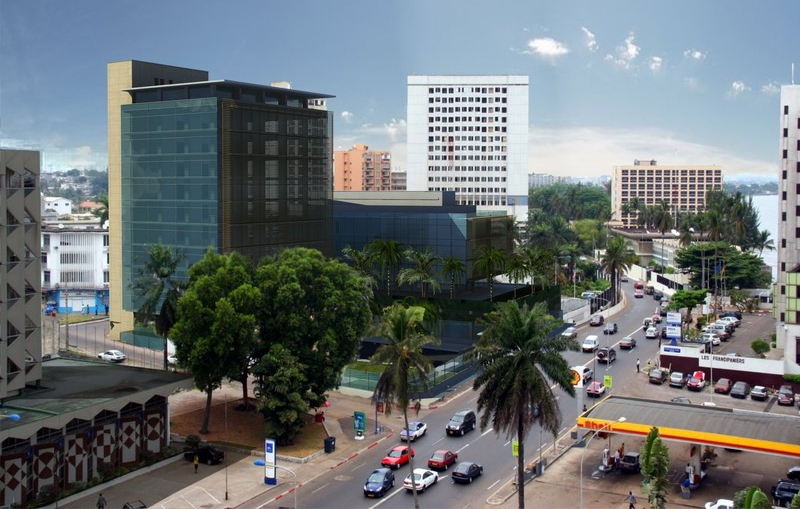
Sep 14, 2016 | Focolare Worldwide
 “When I was invited to visit the Focolare communities in Gabon, I searched for it on Google Earth to find out where on the African continent it was located. It’s actually a small country that is hardly ever talked about. Yet, perhaps few places on earth are so beautiful, rich in natural resources (oil, precious wood, extinct species that are still in existence, 800 km of coastland, the ocean of your dreams. . . .). That’s without saying anything about the people: more than 2 million citizens from 40 ethnic groups, Christians, Animists and Muslims, all living together in peace and – I have to stay it! – an extraordinary ability to welcome and include everyone, as I was able to experience for myself. Currently, Gabon is in a complicated political impasse, following the elections of August 27th and an announcement of victory for one of the presidential candidates. There has been a strong call for transparency both from within and outside the country, from the international community. There is also a strong call to reveal the final election results in each of the regions – as prescribed by the Gabonaise Constitution. The majority of the population are not convinced by the results that have actually been reported, and people have poured into squares in the capital city of Librevelle and in the industrial city Port-Gentil. The demonstrations were contained and repressed with an uncertain number of deaths and many arrests. Non-official means of communication and social networks have been blocked, making it difficult for me to receive news from my friends with whom I spent unforgettable days living the Gospel. It was they who managed to contact me, reporting that all are well and how they’re living through the situation. “Thanks for holding us in your heart!” they write from Libreville. “Unfortunately it’s true that the country is going through violence following the elections. Tensions are high and we’ve been told to stock up on water and basic necessities, and to stay inside our homes. Supermarkets have been ransacked. The communications media is in the hands of the government, and internet is available for only short periods of time between 8:00 and 14:00. Messaging, Facebook and Whatsapp are all blocked. There is a strong and visible military presence on the roads. Total confusion since the election results were announced in this free and democratic land. We’re still waiting for an announcement from the Constitutional Court, with the possibility of even more disorder. People are fearful for the near future of Gabon.” I also received news from Port-Gentil: “We’re well, thanks be to God. Internet access has been limited and complicated since August 31st. We hope it will be active again soon, since it’s such an important communication tool. Last week we were closed inside our houses, unable to go out because of the total chaos on the streets of Port-Gentil and many other places in the country. Moments like these remind of the importance of prayer.” Before saying goodbye to each other we had made a pact, committing ourselves to be peacebuilders, builders of unity and dialogue with everyone in our own work and family environment. Now is more than ever the moment to do it with the support of many other people around the world who live and work for a more united world.” Before saying goodbye to each other we had made a pact, committing ourselves to be peacebuilders, builders of unity and dialogue with everyone in our own work and family environment. Now is more than ever the moment to do it. We were further encouraged by what Pope Francis said yesterday, September 11th to those who were gathered with him in Saint Peter’s Square: “I entrust to the Lord the victims of the clashes and their families. I join the Bishops of that dear African country to invite the parties to reject all violence and to always aim for the common good. I encourage everyone, particularly Catholics, to be builders of peace within the law, in dialogue and fraternity.”
“When I was invited to visit the Focolare communities in Gabon, I searched for it on Google Earth to find out where on the African continent it was located. It’s actually a small country that is hardly ever talked about. Yet, perhaps few places on earth are so beautiful, rich in natural resources (oil, precious wood, extinct species that are still in existence, 800 km of coastland, the ocean of your dreams. . . .). That’s without saying anything about the people: more than 2 million citizens from 40 ethnic groups, Christians, Animists and Muslims, all living together in peace and – I have to stay it! – an extraordinary ability to welcome and include everyone, as I was able to experience for myself. Currently, Gabon is in a complicated political impasse, following the elections of August 27th and an announcement of victory for one of the presidential candidates. There has been a strong call for transparency both from within and outside the country, from the international community. There is also a strong call to reveal the final election results in each of the regions – as prescribed by the Gabonaise Constitution. The majority of the population are not convinced by the results that have actually been reported, and people have poured into squares in the capital city of Librevelle and in the industrial city Port-Gentil. The demonstrations were contained and repressed with an uncertain number of deaths and many arrests. Non-official means of communication and social networks have been blocked, making it difficult for me to receive news from my friends with whom I spent unforgettable days living the Gospel. It was they who managed to contact me, reporting that all are well and how they’re living through the situation. “Thanks for holding us in your heart!” they write from Libreville. “Unfortunately it’s true that the country is going through violence following the elections. Tensions are high and we’ve been told to stock up on water and basic necessities, and to stay inside our homes. Supermarkets have been ransacked. The communications media is in the hands of the government, and internet is available for only short periods of time between 8:00 and 14:00. Messaging, Facebook and Whatsapp are all blocked. There is a strong and visible military presence on the roads. Total confusion since the election results were announced in this free and democratic land. We’re still waiting for an announcement from the Constitutional Court, with the possibility of even more disorder. People are fearful for the near future of Gabon.” I also received news from Port-Gentil: “We’re well, thanks be to God. Internet access has been limited and complicated since August 31st. We hope it will be active again soon, since it’s such an important communication tool. Last week we were closed inside our houses, unable to go out because of the total chaos on the streets of Port-Gentil and many other places in the country. Moments like these remind of the importance of prayer.” Before saying goodbye to each other we had made a pact, committing ourselves to be peacebuilders, builders of unity and dialogue with everyone in our own work and family environment. Now is more than ever the moment to do it with the support of many other people around the world who live and work for a more united world.” Before saying goodbye to each other we had made a pact, committing ourselves to be peacebuilders, builders of unity and dialogue with everyone in our own work and family environment. Now is more than ever the moment to do it. We were further encouraged by what Pope Francis said yesterday, September 11th to those who were gathered with him in Saint Peter’s Square: “I entrust to the Lord the victims of the clashes and their families. I join the Bishops of that dear African country to invite the parties to reject all violence and to always aim for the common good. I encourage everyone, particularly Catholics, to be builders of peace within the law, in dialogue and fraternity.”

Sep 13, 2016 | Non categorizzato

Dr Tarunjit Singh Butalia
Sep 13, 2016 | Non categorizzato
Monday and Tuesday 19th and 20th of September 2016: different arrivals in Rome Wednesday 21st September 2016: Participation in an Audience with the Holy Father – Pope Francis in the Vatican – after the Audience, visit of the Tomb of Saint Peter the Apostles and the Popes – Visits of some selected holy sites of Rome Thursday 22nd September 2016: Touristic visit of Rome – Catacombs, Colosseum and Basilicas of Rome. Departure to Loppiano (Florence – first Focolare Citadel in the World created by Chiara Lubich) night at Loppiano. Friday 23rd of September 2016: Visit of Loppiano and meeting with the inhabitants of Loppiano Saturday 24th of September 2016: Departure from Loppiano to Trento – Chiara’s native town and citadel. A stop in Florence town – touristic visit. Night at Trento Sunday 25th of September 2016: Visit of Trent and inhabitants, Institutions, Municipality (Mayor) and Bishop of Trent. Monday 26th September 2016: departure from Trento to Rome – a touristic stop at Venice. Night in Rome – Castel Gandolfo . Focolare International Mariapolis Centre. Tuesday 27th September 2016: visit to the tomb of Mafua Ndem Chiara Lubich, at the Focolare Headquarters in Rocca di Papa. A meeting with the Centre of the Focolare Movement. Wednesday 28th September 2016: Departure and end of the Pilgrimage.

Sep 13, 2016 | Non categorizzato
 The fruits of the Word “For years now, three of us have been asking the new parish priest to talk more about the Word of God. So he arranged for us to hold a meeting before Mass every Sunday. The more we strived to put the Word into practice, the more people kept asking to participate. In a few months, we formed a big group. There was a strong family relationship among the frequent participants, and in the parish the atmosphere started to change. Now we were no longer satisfied only with prayer and individual efforts to be good Christians, but were involved in a journey where each one tried to reach the goal of sanctity with the others. We strongly felt the presence of Jesus at our side and in our midst, and this started to show its effects: besides the joyful discovery of a new image of the Church, we began to feel the need to also share material things with the less fortunate, and support the disadvantaged families, disoriented youth, and people who needed to rediscover God’s love. And this was not only within the framework of the parish.” (Lucio – Italy) The forgotten Christmas bonus “I was at the market when I remembered that my parents didn’t have any money, so I did the shopping also for them. On my way home, I noticed a girl crying in the street: she was hungry and her family – she told me – had nothing to eat. After consulting my husband, Antonio, we decided to bring to that family half of our monthly groceries. The next day our neighbour’s daughter came to confide that her father had gone away to look for work and no longer returned. Also they, with many children, had nothing to eat. I said to myself: “Enough of all this, we have already done our part!” But when Antonio reminded me that we still had not given what was necessary, once again we divided the remainder of our supplies. By then there was no money left for the shopping, but every day we received some help from someone. At the end of the month my salary was double. It was not a mistake: I had forgotten about my Christmas bonus.” (B. P. – Brazil) Tradition with a new heart “As a tradition in our society, particularly in the villages, the men do not help in the housework, and the women go to work even when they are sick: they do not consider themselves as victims and neither do the men feel cruel. It was so also in my house. If my wife was doing some chore and was reading a book or watching TV, it never occurred to me to get up if our son was crying: it was her task. When with the help of my Christian friends, I realized that the others had the right to receive my love and help, I felt I had to start especially at home. One day, when my wife who was preparing breakfast had to tend to the baby, I set the table for her. When she returned, she was surprised but did not make any remarks. But when I ironed my own shirt to go to the office, it was simply too much for her…. So I told her about the beauty of being the first to love and doing to others what we want others to do to us. Now there is more harmony in the family.” (W.U. H. – Pakistan)
The fruits of the Word “For years now, three of us have been asking the new parish priest to talk more about the Word of God. So he arranged for us to hold a meeting before Mass every Sunday. The more we strived to put the Word into practice, the more people kept asking to participate. In a few months, we formed a big group. There was a strong family relationship among the frequent participants, and in the parish the atmosphere started to change. Now we were no longer satisfied only with prayer and individual efforts to be good Christians, but were involved in a journey where each one tried to reach the goal of sanctity with the others. We strongly felt the presence of Jesus at our side and in our midst, and this started to show its effects: besides the joyful discovery of a new image of the Church, we began to feel the need to also share material things with the less fortunate, and support the disadvantaged families, disoriented youth, and people who needed to rediscover God’s love. And this was not only within the framework of the parish.” (Lucio – Italy) The forgotten Christmas bonus “I was at the market when I remembered that my parents didn’t have any money, so I did the shopping also for them. On my way home, I noticed a girl crying in the street: she was hungry and her family – she told me – had nothing to eat. After consulting my husband, Antonio, we decided to bring to that family half of our monthly groceries. The next day our neighbour’s daughter came to confide that her father had gone away to look for work and no longer returned. Also they, with many children, had nothing to eat. I said to myself: “Enough of all this, we have already done our part!” But when Antonio reminded me that we still had not given what was necessary, once again we divided the remainder of our supplies. By then there was no money left for the shopping, but every day we received some help from someone. At the end of the month my salary was double. It was not a mistake: I had forgotten about my Christmas bonus.” (B. P. – Brazil) Tradition with a new heart “As a tradition in our society, particularly in the villages, the men do not help in the housework, and the women go to work even when they are sick: they do not consider themselves as victims and neither do the men feel cruel. It was so also in my house. If my wife was doing some chore and was reading a book or watching TV, it never occurred to me to get up if our son was crying: it was her task. When with the help of my Christian friends, I realized that the others had the right to receive my love and help, I felt I had to start especially at home. One day, when my wife who was preparing breakfast had to tend to the baby, I set the table for her. When she returned, she was surprised but did not make any remarks. But when I ironed my own shirt to go to the office, it was simply too much for her…. So I told her about the beauty of being the first to love and doing to others what we want others to do to us. Now there is more harmony in the family.” (W.U. H. – Pakistan)
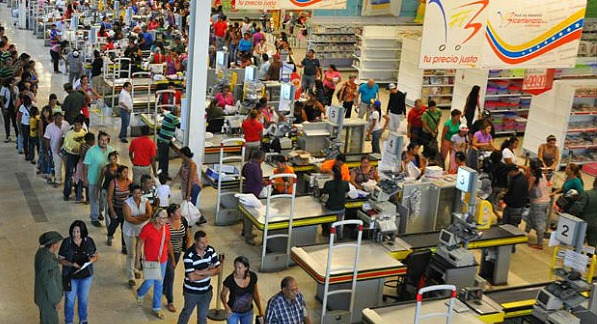
Sep 12, 2016 | Focolare Worldwide
 The news reaching us from Venezuela is not at all comforting. Furthermore, the Latin American Country is not only exhausted but also divided. In this framework, the Focolare community is making every effort to create reconcilement and solidarity, sharing all they have. The community of Colinas de Guacamaya (Valencia), after asking themselves in what way they could face this time of social, political and economic crisis that is reaching its peak, has responded by doubling their commitment to putting into practice the Gospel’s new commandment of mutual love, starting from the small daily gestures. One of them wrote: «Today, while I was buying 12 rolls of toilet paper at the supermarket, I thought of the many people here in Venezuela, who can find none on the shelves even if they had the money. I called a friend who was happy with the news and she asked me to get some for her. In turn she asked me if I needed anything, and so I told her that there was no more soap in the house. “Ah – she answered – I can give you some, and what’s more, you can take with you also some bananas which my son has just brought.” Once again I experienced concrete love, and when it circulates, that promise, “give and you shall be given,” which Jesus talked about, becomes a reality.» Those are simples acts, but also extreme ones, if we consider that for a stolen mango, people get to kill one another. Another woman recounted: «At the start of the day I met someone who was looking for cooking oil, and since I had some, I shared it with her; after a while I met another person who needed an injection, and so I administered it with great care. Much later a woman came knocking: her little girl had a bad case of flu and needed the nebulizer which luckily I had, and which I had already lent to many people. While passing by a friend’s house, I took the opportunity to ask if she needed anything: “Yes, some detergent for the laundry,” she said. I ran home to get mine and halved it with her. Since my husband works on the night shifts, in the evening some member of the community keeps me company. Having received an act of solidarity, I took the opportunity to prepare the dinner, knowing that there were those who did not have enough food. Upon examining my day before falling asleep, I feel a great joy: we have lived for one another, and together helped each other to live the Gospel. Tomorrow will give me another opportunity to see in every person that passes me by, the special presence of God.» The problems of the country are so great that these daily narrations may appear to be naive, or insignificant, like small drops in the ocean, and we all hope that solutions may come at the political, economic and social levels. Mother Theresa of Calcutta affirmed that “what we are doing is just a drop in the ocean, but if we fail to do this, the ocean would have a drop less.” It seems that this small community of Venezuela also has the same conviction.
The news reaching us from Venezuela is not at all comforting. Furthermore, the Latin American Country is not only exhausted but also divided. In this framework, the Focolare community is making every effort to create reconcilement and solidarity, sharing all they have. The community of Colinas de Guacamaya (Valencia), after asking themselves in what way they could face this time of social, political and economic crisis that is reaching its peak, has responded by doubling their commitment to putting into practice the Gospel’s new commandment of mutual love, starting from the small daily gestures. One of them wrote: «Today, while I was buying 12 rolls of toilet paper at the supermarket, I thought of the many people here in Venezuela, who can find none on the shelves even if they had the money. I called a friend who was happy with the news and she asked me to get some for her. In turn she asked me if I needed anything, and so I told her that there was no more soap in the house. “Ah – she answered – I can give you some, and what’s more, you can take with you also some bananas which my son has just brought.” Once again I experienced concrete love, and when it circulates, that promise, “give and you shall be given,” which Jesus talked about, becomes a reality.» Those are simples acts, but also extreme ones, if we consider that for a stolen mango, people get to kill one another. Another woman recounted: «At the start of the day I met someone who was looking for cooking oil, and since I had some, I shared it with her; after a while I met another person who needed an injection, and so I administered it with great care. Much later a woman came knocking: her little girl had a bad case of flu and needed the nebulizer which luckily I had, and which I had already lent to many people. While passing by a friend’s house, I took the opportunity to ask if she needed anything: “Yes, some detergent for the laundry,” she said. I ran home to get mine and halved it with her. Since my husband works on the night shifts, in the evening some member of the community keeps me company. Having received an act of solidarity, I took the opportunity to prepare the dinner, knowing that there were those who did not have enough food. Upon examining my day before falling asleep, I feel a great joy: we have lived for one another, and together helped each other to live the Gospel. Tomorrow will give me another opportunity to see in every person that passes me by, the special presence of God.» The problems of the country are so great that these daily narrations may appear to be naive, or insignificant, like small drops in the ocean, and we all hope that solutions may come at the political, economic and social levels. Mother Theresa of Calcutta affirmed that “what we are doing is just a drop in the ocean, but if we fail to do this, the ocean would have a drop less.” It seems that this small community of Venezuela also has the same conviction.

 As the news media reported, a magnitude 7.8 earthquake hit Ecuador on April 16, especially the provinces of Manabi, Esmeraldas, Santo Domingo and Pichincha, leaving nearly 30 people without a roof.
As the news media reported, a magnitude 7.8 earthquake hit Ecuador on April 16, especially the provinces of Manabi, Esmeraldas, Santo Domingo and Pichincha, leaving nearly 30 people without a roof. At this stage, the post-emergency interventions that were deemed most serious regarded the production of goods that could be sold and provide economic support for the local populations, and psychological support in overcoming the trauma which – as they write – “is still very quite strong after 5 months.” They also underscored another important point: “We saw the need to offer training in the procedure for applying for assistance from the Ecuador Government for the reconstruction of housing. At first, relief efforts concentrated on three localities, all located in the Province of Esmeraldas: Salima, “10 de Agosto” and Macara, “where projects will carried out to alleviate the consequences of trauma and to reinforce the organizational skills of the community,” they explain. “Moreover, a cooperative bread bakery and a training course in making fishing nets, involving the elderly fishermen as trainers. In the locality known as “10 de Agosto”, handicraft workshops will be held and a group of mothers will be helped in setting up a nursery.” The local commission writes: “this represents the first stage of the project, which corresponds to current funds. As we work with the community, we’ll delve more deeply into the future needs of the people and be able to respond to them. As of today: € 35.502 have been donated by AMU for the Ecuador emergency, € 10.000 of which have already been paid out, whereas the sum of € 10.000 has been donated to the cause by AFN (Action for New Families). Read earlier news: – Ecuador Emergency – Two months after the Ecuador earthquake
At this stage, the post-emergency interventions that were deemed most serious regarded the production of goods that could be sold and provide economic support for the local populations, and psychological support in overcoming the trauma which – as they write – “is still very quite strong after 5 months.” They also underscored another important point: “We saw the need to offer training in the procedure for applying for assistance from the Ecuador Government for the reconstruction of housing. At first, relief efforts concentrated on three localities, all located in the Province of Esmeraldas: Salima, “10 de Agosto” and Macara, “where projects will carried out to alleviate the consequences of trauma and to reinforce the organizational skills of the community,” they explain. “Moreover, a cooperative bread bakery and a training course in making fishing nets, involving the elderly fishermen as trainers. In the locality known as “10 de Agosto”, handicraft workshops will be held and a group of mothers will be helped in setting up a nursery.” The local commission writes: “this represents the first stage of the project, which corresponds to current funds. As we work with the community, we’ll delve more deeply into the future needs of the people and be able to respond to them. As of today: € 35.502 have been donated by AMU for the Ecuador emergency, € 10.000 of which have already been paid out, whereas the sum of € 10.000 has been donated to the cause by AFN (Action for New Families). Read earlier news: – Ecuador Emergency – Two months after the Ecuador earthquake



 In 2011, Maria Clara who had just retired, transferred her services to the women’s jail of Pozzuoli (Naples-Italy), a huge jail, and one of the most overcrowded in Italy. Struck by the cries of pain that reached her ears from the barred windows, she discussed it with her friends of the l
In 2011, Maria Clara who had just retired, transferred her services to the women’s jail of Pozzuoli (Naples-Italy), a huge jail, and one of the most overcrowded in Italy. Struck by the cries of pain that reached her ears from the barred windows, she discussed it with her friends of the l


